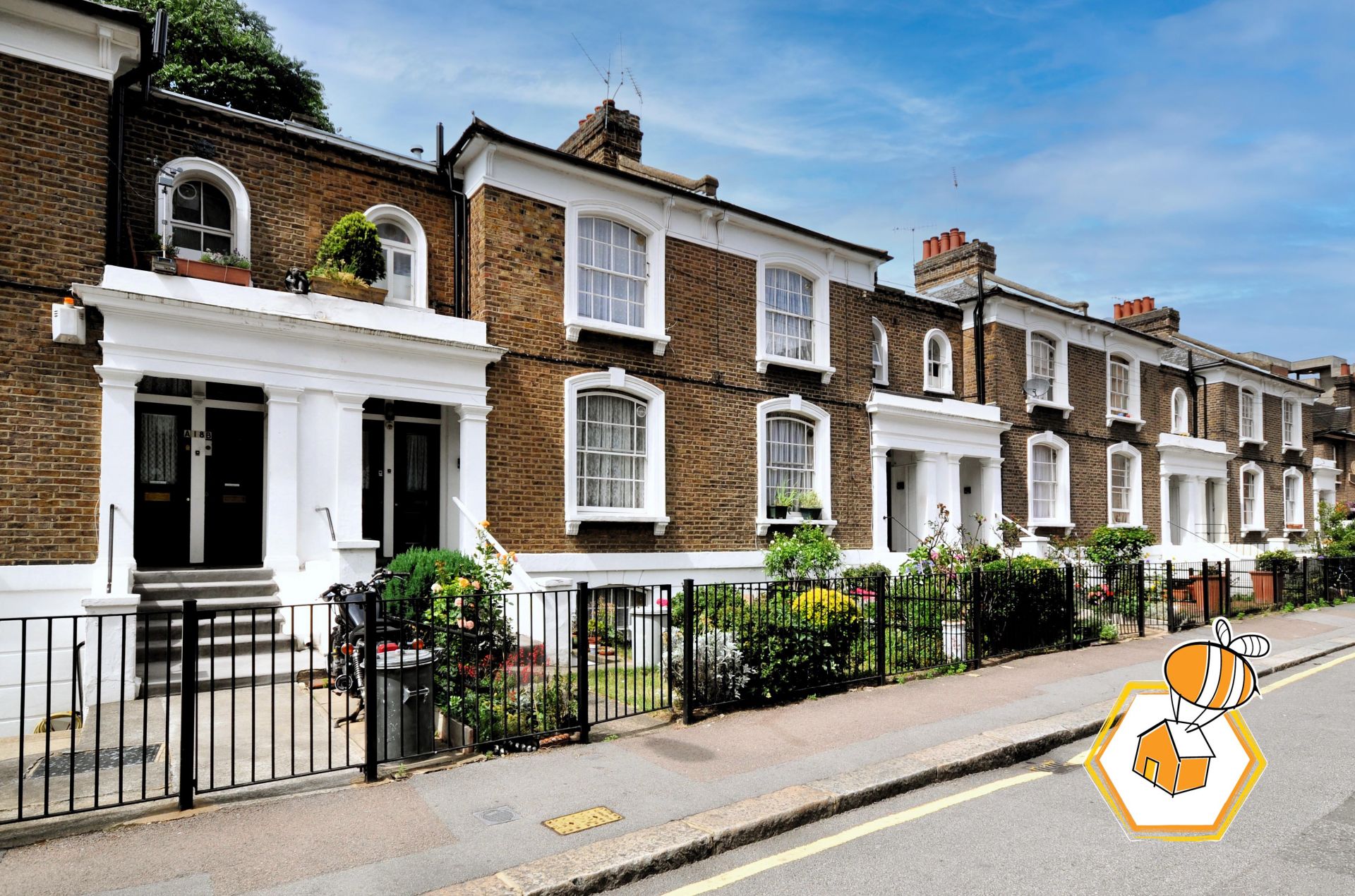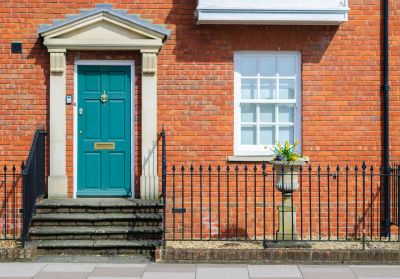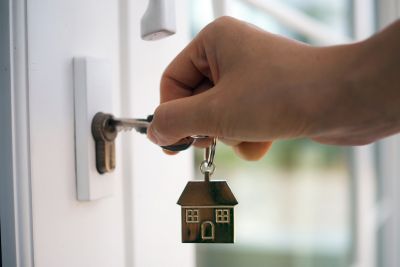Property has always has been an attractive investment due to the secure nature of owning a physical asset, combined with the potential to receive both regular income and capital gain.

Bricks and mortar are often favoured in times of uncertainty and considered a more stable and lower risk investment than others, like the stock market. Individuals who buy property to fund their lifestyle or retirement plans enjoy having more input and control over their asset if they choose to.
Like any other type of financial investment, you should take some time to research and understand the pros and cons, and possibly seek professional advice where appropriate.
In this beginner's guide to investing in property, we will explore some of the basics and provide you with our insider tips, knowledge and invaluable experience.
What are your investment goals?
An excellent place to start is to ask yourself what you are trying to achieve with your investment? The answer to the following questions may help you to understand the best solution for you:
- Are you looking to gain regular income from your investment, grow the capital, or both?
- Do you want to gain income or return on your investment now, or in the future?
- Do you have the time, skills, or appropriate knowledge to get involved, or would you prefer to sit back and let others look after it?
- Would you be prepared to take on more risk to increase the reward or return?
Now let's look at the following types of opportunities for investing in property and see which one best meets your objectives.
Buy to Let Investment
"Buy to let" is a term given to purchasing a property to rent it out for tenants to live in. This can provide the potential for both regular income from the rent received and capital gain, should the property's value increase.
The amount of income received each month will depend on several variables, including some described below. Each of these should be understood before making any decisions as they will have a large influence on the investment's profitability, known as the yield. Your ability to manage these variables is, therefore, an important consideration.
- What is the monthly rental income amount for that type of property and location?
- What are the financing costs, such as mortgage repayments?
- What other outgoings such as insurance, leasehold costs, property maintenance or management fees are you likely to incur? Find out what it costs to let out a property in Doncaster.
The potential capital gain you may be able to achieve is likely to be influenced by the following:
- The amount paid to purchase the property in the first place, including Stamp Duty Land Tax.
- The amount of money spent renovating the property or bringing it up to tenancy requirements and standards.
- The change in property prices over the period for that type of property and location.
Here are some strategies you may want to consider when evaluating buy-to-let investing.
Leverage your equity
Rather than using your funds to purchase a single property, it may be possible to use your equity as a deposit to buy several properties. This approach is dependent on securing the appropriate borrowing, and you may want to think about the additional risks involved. However, this approach's upside is the potential to multiply your gains whilst the tenants are meeting the loan repayments.
You may not want all your eggs in one basket.
There are some instances when bigger is not always better. Don’t assume that a single larger property is the best option. There are some benefits of spreading your investment across multiple smaller properties. For instance, if you own one property and it is vacant, you have no money coming in. Owning two properties means you continue to receive income should the other become vacant. Furthermore, there is a point of diminishing returns regarding the price to purchase a property and the potential monthly rental income. There are many examples where two smaller properties would cost less to buy than one larger one, and the combined rent would be more. It is something to consider. See what properties are available across Doncaster for less than £125K.
Short term income
For those looking to gain more income now, there are ways to finance the purchase of properties in such a way as to increase your monthly income. One such approach is to use an “interest-only” mortgage product offered by most lenders. As the name suggests, these loans only require you to repay the interest each month and not the capital. Therefore the loan amount will never decrease, but the repayments are much lower, meaning you receive more of the rent each month. Many investors utilising this approach are expecting property prices over the long term to increase and benefit from capital gain.
Longer-term income
Favourable with investors who have time on their side, but without the means to purchase a property in full. This is a way of creating income for the future. Often used as a 'pension pot'. Properties are purchased with a deposit and a loan, then rented out. The monthly rent received may only cover the mortgage payments, but once the mortgage is repaid in full, the investor benefits from now owning the property outright.
Buy to Re-sell
Sometimes referred to as “flipping”, buying a property or land to re-sell at a higher price provides the prospect of making money. Investors will need to identify opportunities and add value in some way to increase its value and be successful. However, in the long term, properties or land can appreciate value over time without the need to do anything. Here are some examples of how to create or add value to property or land:
- Modernise and renovate
- Create more space or extend
- Convert to something different
- Change its use (for example commercial to residential)
- Gain planning permission
There are lots of opportunities for those who can spot value that others have overlooked or missed.
Here are some things to take into account when looking for a property to purchase and flip:
Purchase Price
Every property has what is known as a ceiling price based on size, style, location and standard of finish, amongst other factors. This will limit to a certain extent the maximum amount of money someone is prepared to pay for it. This should be carefully considered when looking to purchase a project to re-sell shortly, so think carefully before making an offer.
Costs
The level of additional investment and cost incurred, adding value will be a crucial aspect of making a reasonable return. The amount of work needed to bring the property up to a good standard and still take away a profit from the sale will dictate how much you are willing to pay. You will also need to think about the costs involved in buying and selling a property.
Other Considerations
There are many aspects to think about when purchasing an investment property either for rental purposes or re-sale. Here are some of the other points you need to be aware of.
Property Type
Some types of properties are more sought-after than others, both with lettings and sales. Bungalows and detached properties often come with a higher premium as they are fewer in number.
It's worth noting that not all property types appreciate value at the same rate, but may cost more to purchase.
You may also want to consider the likely occupants that certain property types may appeal to, especially in the rental sector. Think about certain demographics and how that may influence aspects like tenancy duration, etc. For example, families tend to move less frequently and so reside in properties for longer.
Check out what opportunities there are across Doncaster for the following different types of property:
Houses | Bungalows | Apartments & Flats | Plots & Land
Location
It is important to conduct thorough research into the area in which you are looking to invest. Factors such as proximity to employers, travel network links, good schools, entertainment facilities, and shopping services all impact the sales and rental values of a property. It is also worth looking into council initiatives and planning permission for the local area to gather a clear picture of how the area will look years to come. Check out the properties available in the following popular search areas:
Armthorpe | Auckley | Balby | Belle Vue | Bentley | Bennetthope | Bessacarr | Branton | Cantley Edenthorpe | Finningley | Lakeside | Rossington | Scawthorpe | Sprotbrough | Town Moor | Warmsworth | Woodfield Plantation
Finances
It is important to understand and investigate your financing options before you start looking. It may be a good idea to speak with a mortgage advisor should you require a mortgage, as there are more requirements for a loan on an investment property.
- Explore all financing options (interest-only mortgages etc.) before committing to a purchase.
- Calculate the yield on a rental property. Rental yield is calculated in the following way: annual rental amount divided by the total amount of money invested in the property.
- Legalities for rental properties require an initial monetary outlay. All properties being rented in England require an Electrical Installation Condition Report, Energy Performance Certificate and a Gas Safety Certificate. This must be conducted by qualified and registered tradespeople and as such, come at a cost.
- You will need to make provisions to cover costs like mortgage payments, insurance, etc. for periods of non-occupancy and non-payment of rent.
- Be prepared for and make a plan for ongoing costs when renting a property out to cover the replacement or repair of fixtures and fittings.
- Be realistic when evaluating potential rental income and resale prices. You should consider three scenarios regarding prices, worse case, likely case and best case. That way, you will understand the risks better and see the profitability in all scenarios.
Taxation
Depending on the type of property investment you embark upon, it is likely that you will incur several forms of taxation. Here are some relevant taxes you should be aware of.
- Stamp Duty Land Tax. This tax is applicable when purchasing a property, and the rates are potentially higher when buying for investment. Find out more here: https://www.gov.uk/stamp-duty-land-tax/residential-property-rates
- Capital Gains Tax. The government charge tax on any asset that is being sold for a profit; this also applies to the property. More information can be found about this using the following link: https://www.gov.uk/capital-gains-tax
- Income Tax. Landlords are required to pay tax on any profits they make on rental income. Further details can be found here: https://www.gov.uk/guidance/income-tax-when-you-rent-out-a-property-working-out-your-rental-income
Further reading
Check out some other related articles with tips and advice to help you with your property investment journey.
Should I use an agent or self manage?
Renting out your Home – 10 Key Steps to hassle-free lettings
If you would like to have a chat with one of our experts about investing in property, give us a buzz on 01302 247754.










